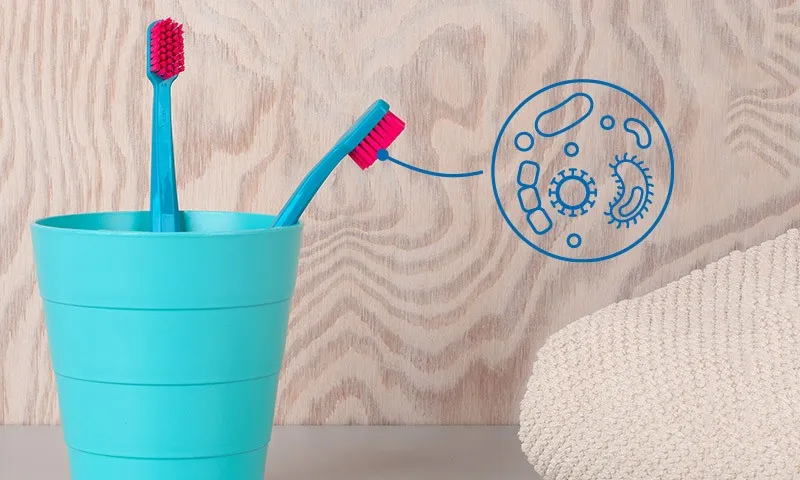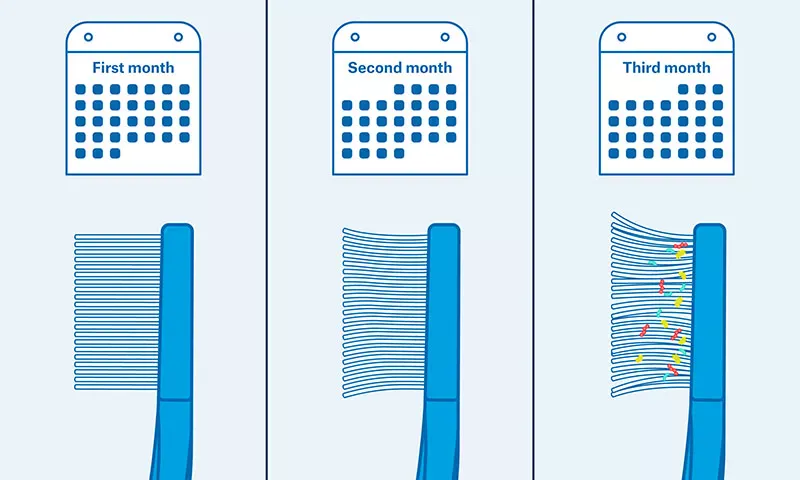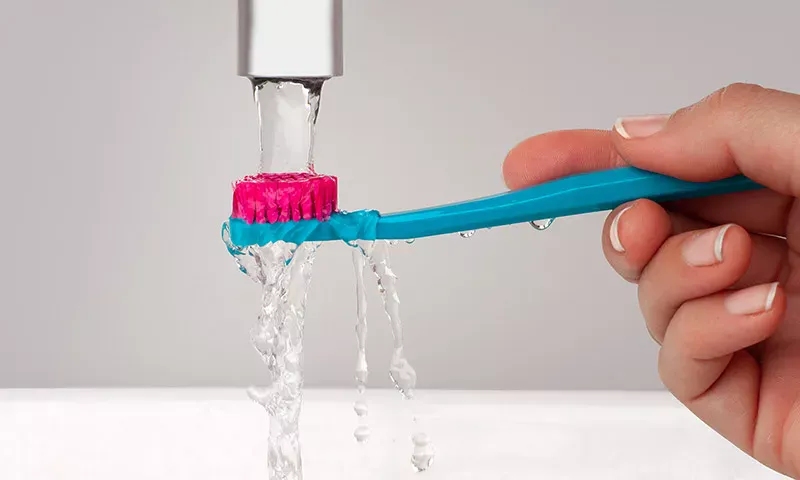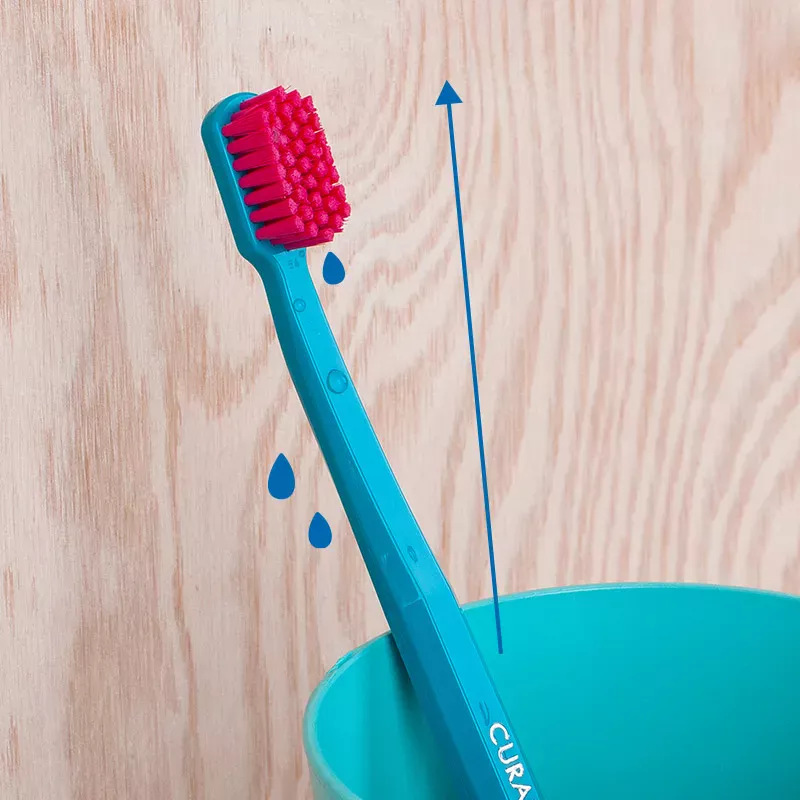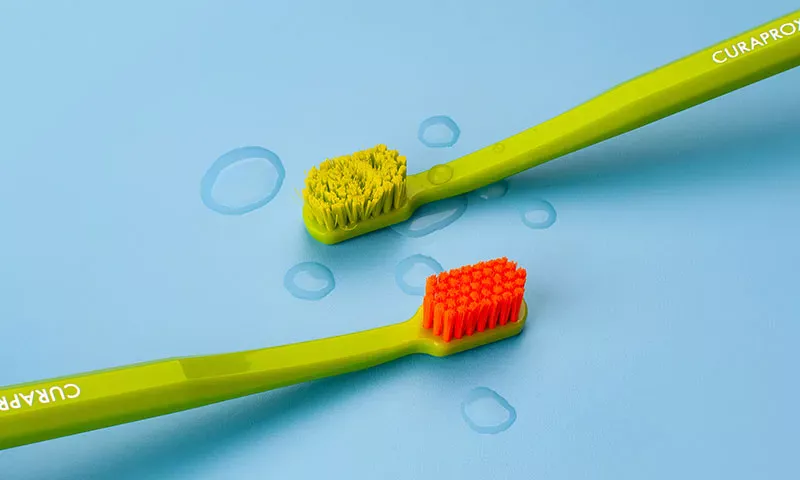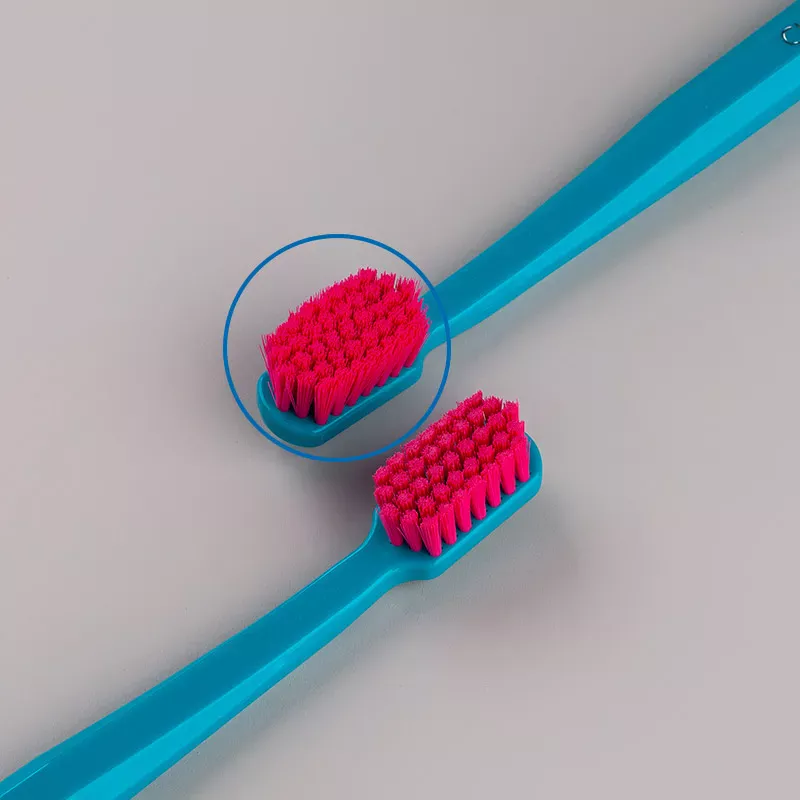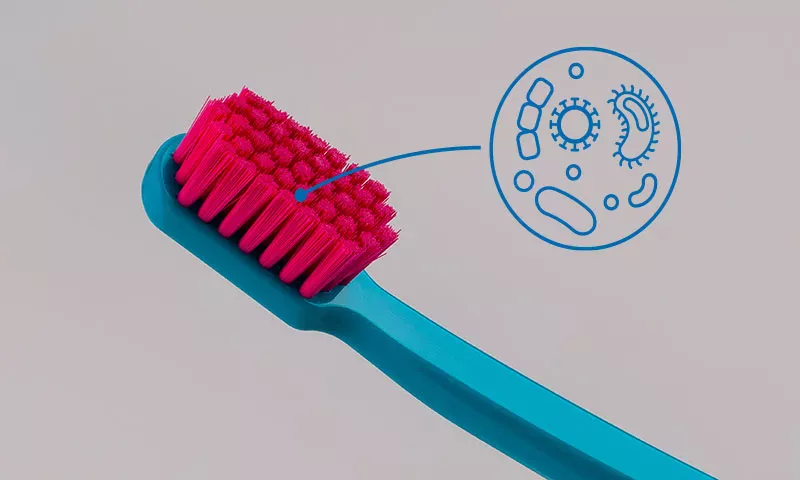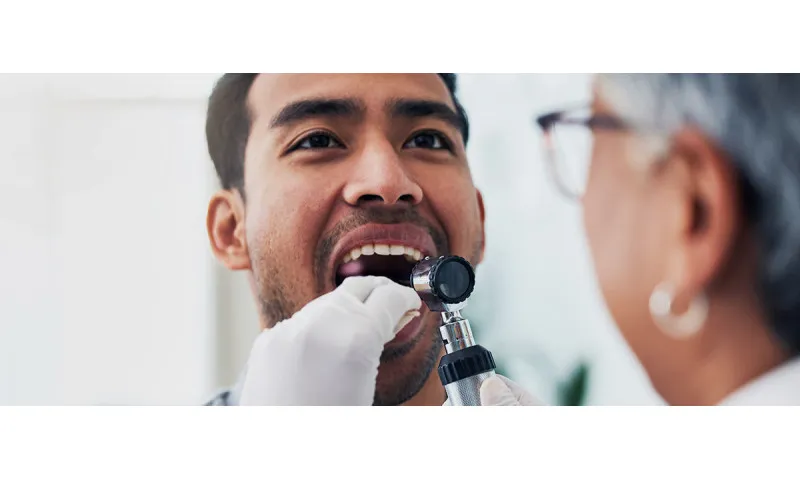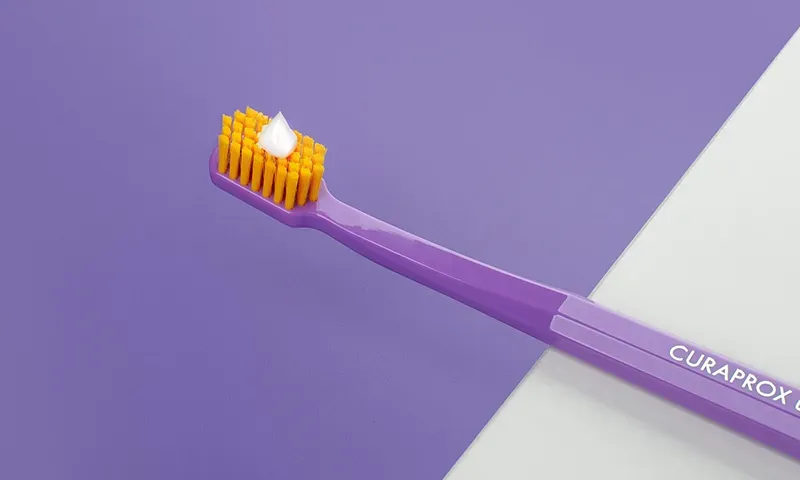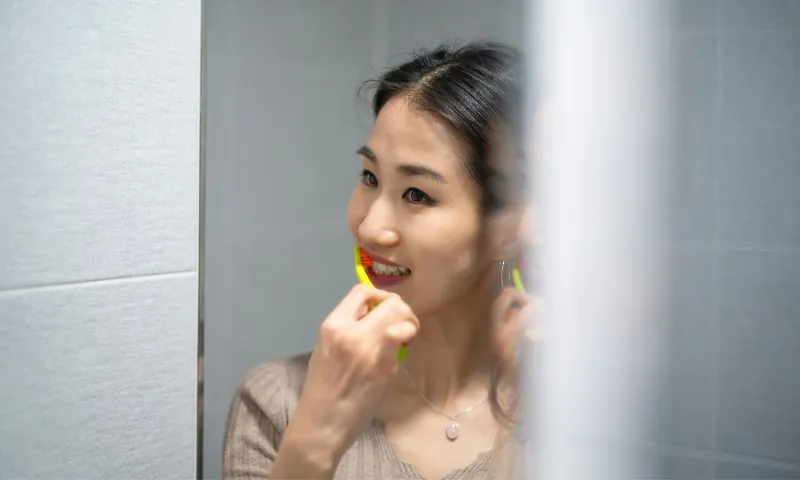Introduction
Replace your toothbrush regularly
We’ll tell you how often you should replace this all-important bathroom item to make sure it doesn’t lead to unnecessary trouble for your mouth or overall health.
A toothbrush is a dental hygiene instrument that should be used for approximately three months, but many of us neglect to follow this simple advice. There are two important reasons why a toothbrush should be replaced regularly: firstly, as a result of mechanical wear, the bristles start to bend, leading to insufficient removal of dental plaque over time. The second reason is the rapid accumulation of bacteria, which tends to grow much faster in moist environments.
Step one
Rinse it every time and let it dry
It is important to rinse your toothbrush after every use under a stream of water and leave it to dry in the upright position.
It is not necessary to keep a cover on your toothbrush; these small plastic cases are only intended for protection during occasional transport. Keeping your brush covered all the time can lead to the growth of large amounts of surface bacteria on the cover itself. On top of that, a cover prevents the bristles inside from drying out properly, trapping moisture and creating the ideal environment for bacteria to thrive.
Step two
Signs of wear out on your toothbrush
You could be brushing your teeth too hard
You might think that toothbrushes designed with a larger number of bristles, like CURAPROX brushes, would be likely to wear out even faster, but the truth is that even these ultrafine bristles are designed and tested to keep teeth healthy throughout three months of everyday use.
If your toothbrush bristles are frayed and the fibres are bent after just a few days or weeks, you could be doing something wrong. A toothbrush that wears out too quickly is often the result of applying too much pressure, which is the consequence of using a wrong cleaning technique.
To be on the safe side, read the instructions on how to clean your teeth correctly to prevent your toothbrush from wearing out too quickly or potentially even hurting your teeth and gums. You can also ask your dentist or dental hygienist about the proper use of a toothbrush.
Step three
Ditch your toothbrush after an illness
If you’ve been under the weather recently, it’s a good idea to replace your toothbrush – even if it still seems to be in good shape. In fact, your toothbrush should be replaced following the recovery from a viral or bacterial infection. Whether you’ve just been suffering from a common cold or another infectious disease, don’t hesitate – just get a new one.
Three things to remember
A worn-out toothbrush does not clean your teeth as effectively
1. Replace your toothbrush approximately every three months to avoid bent bristles and the accumulation of bacteria.
2. Don’t apply too much pressure. A toothbrush often wears out too quickly as the result of applying too much pressure or having a poor cleaning technique.
3. Replace your toothbrush immediately after an illness. After a common cold or any other infectious disease, it’s a good idea to just get a new one. If you don’t, the illness might return, courtesy of your toothbrush.
 Swiss premium oral care
Swiss premium oral care
